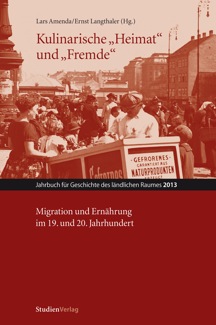Heimat in der Fremde?
Europäisches Ernährungs- und Konsumverhalten im China des 19. Jahrhunderts
DOI:
https://doi.org/10.25365/rhy-2013-3Abstract
In the nineteenth century, the global expansion of the West attracted many Europeans to
start a new life abroad. China was one of the countries that promised good earnings and
high social positions combined with thrilling exoticism. Over the course of the century,
Westerners established settlements in strategically important cities of the country, such as
Shanghai or Tianjin. By the end of the century, many of them had grown into large communities
with highly developed infrastructures that included schools, community houses
and churches. When Europeans started settling in China, food played an important role
in establishing a new life abroad. Culinary traditions not only helped to transfer national
identities to the new environment, they also created a platform for cultural transfer and
the emergence of a new, international community. Common, often extensive meals marked
the daily life in China’s European settlements. They offered a welcomed distraction as well
as the possibility of a new social definition and differentiation of the self. By exploring the
food habits and consumer behaviour, this paper analyses how Europeans established their
identity and community in nineteenth century China.


